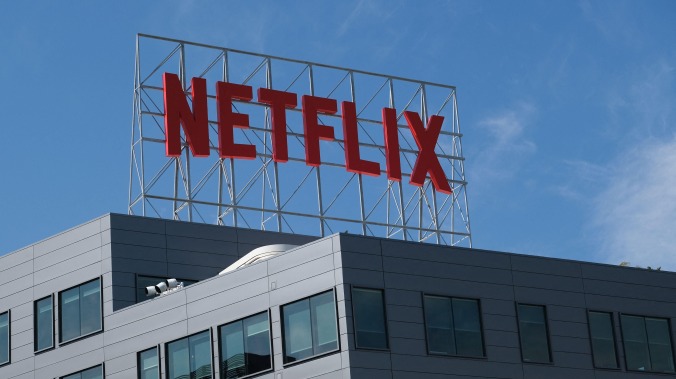Netflix now getting *sad trombone* sued for those crappy subscriber numbers
Netflix shareholders claim they were mislead about the company's prospects in wake of the streamer's first big subscriber drop in recent memory

Netflix continues its sudden, somewhat shocking transformation into the Charlie Brown of the streaming world this week, as Vulture reports that the service—which, just a few months ago, was riding high as the established apex predator of the streaming universe—is now getting sued by its shareholders for those crappy subscriber numbers it posted back in April.
Specifically, the company’s investors are pissed at what they’re claiming was a deliberate attempt to mislead them about whether the streaming entertainment company was going to be able to hit subscriber goals it set for itself in Q1 of 2022. In an earnings call in April, the company announced it had lost 200,000 subscribers during the quarter, and expects to lose even more during Q2; the immediate result was one of the biggest drops in the company’s stock price to date, plunging roughly $50 billion in value.
Shareholders are claiming to be blindsided by the loss, with accusations that Netflix made “misleading statements” and “failed to disclose” the oncoming drop—which has been blamed on a number of factors, including the fact that an easing of pandemic restrictions means a large chunk of humanity is no longer living in individual blanket forts with nothing but Bridgerton and Is It Cake? to keep them some semblance of sane. Investors who owned Netflix stock between October of last year and April of 2022 are reportedly now seeking monetary damages against the company.
As to what Netflix intends to do about these subscriber issues, that remains to be seen—although there are spreading concerns that the company’s approach is landing on the decidedly myopic side. For one thing, co-CEO Reed Hastings has now repeatedly suggested that its best revenue option in the U.S.—where the subscriber base is probably about as saturated as it’s going to get—is to try to catch and charge people sharing their passwords, which feels like a very “Gotta be some change in the couch cushions, right?” tack for a multi-billion-dollar company to take.
The service also went on a penny-pinching spree in recent weeks, gutting (and potentially rebuilding) its original animation department, and eliminating a number of editorial jobs at its Tudum fan site. But its basic strategy of “Let’s pay Gal Gadot and The Rock hundreds of millions of dollars to look hot while Ryan Reynolds cracks jokes” seems to be continuing to run in full force—even as rising competitors like Disney+ continue to run circles around it in terms of getting audiences excited for the original programming that’s seen as the only way to stave off competitors in an increasingly crowded streaming world.